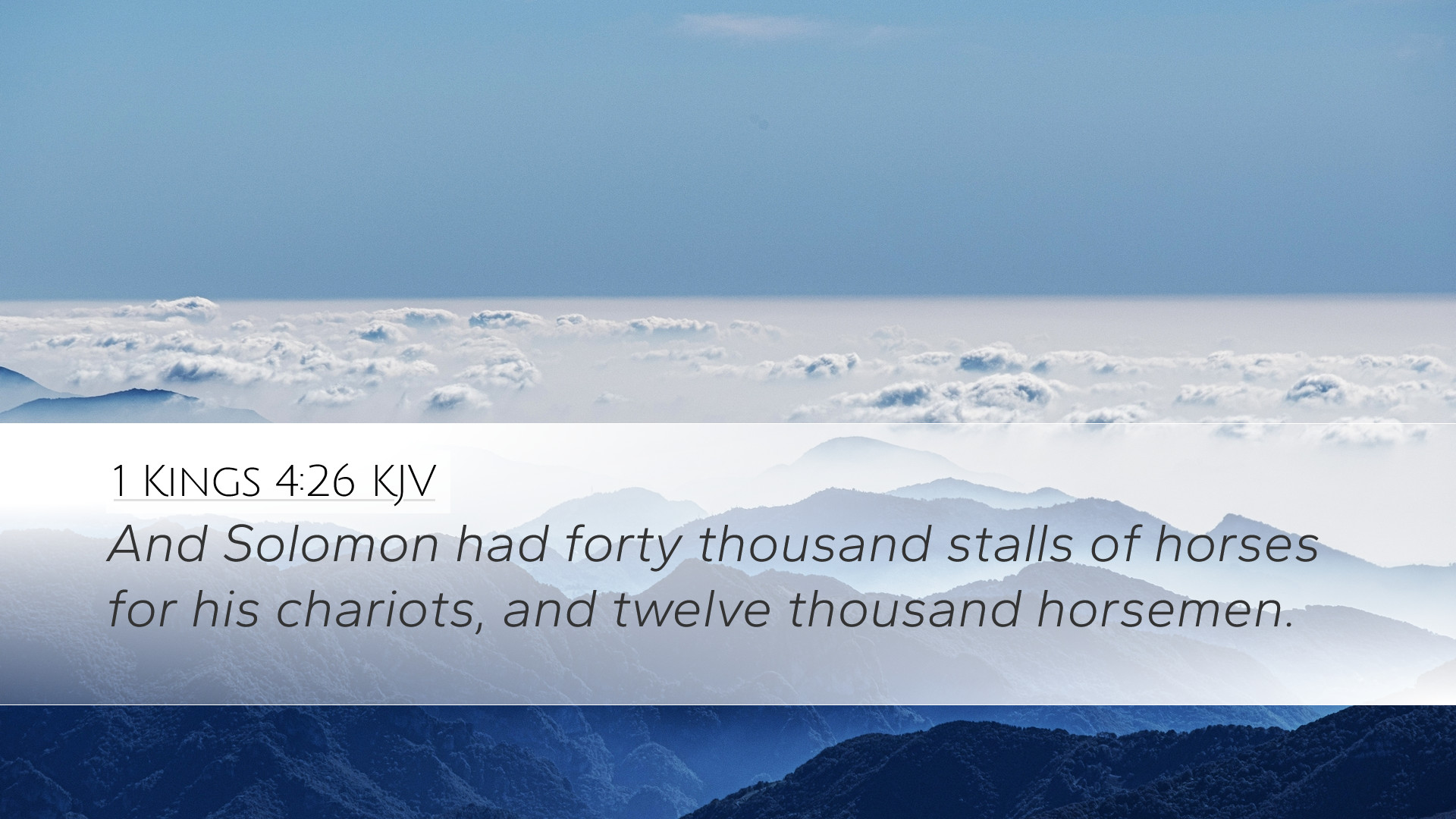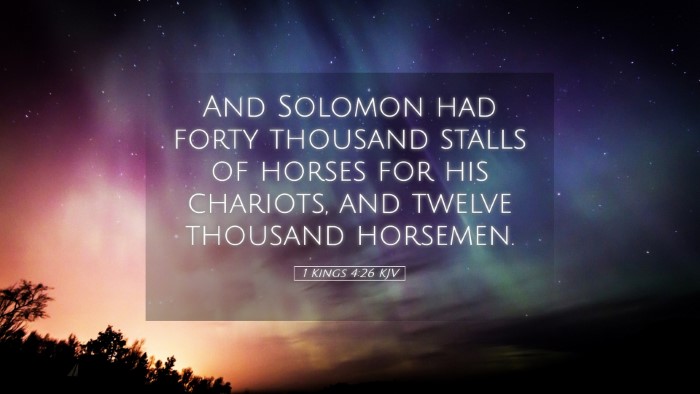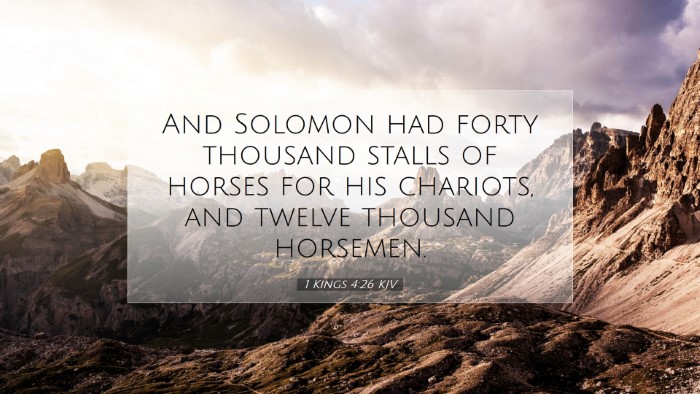Commentary on 1 Kings 4:26
Verse: "And Solomon had forty thousand stalls of horses for his chariots, and twelve thousand horsemen."
Introduction
This verse provides a glimpse into the grandeur and administrative capacity of King Solomon's reign. It reveals Solomon's wealth, military strength, and the organizational prowess he employed in establishing his kingdom. In light of its historical and spiritual significance, various public domain commentaries will be explored to present a comprehensive understanding of this passage.
Overview of Solomon's Reign
The reign of Solomon is noted for its unprecedented peace and prosperity. His pursuit of wisdom, initiated by his request from God, set the tone for his leadership. As we examine this specific verse, we understand that his achievements encompass not just spiritual wisdom but also earthly grandeur.
Insights from Matthew Henry
Matthew Henry emphasizes the importance of the numbers stated in the verse. He notes that:
- The "forty thousand stalls" signifies a massive investment in military resources, suggesting Solomon's desire for peace maintained through strength.
- The presence of "twelve thousand horsemen" indicates a well-organized military structure, essential for a king who aimed to secure the nation’s borders and maintain internal stability.
- Henry also points out that such lavish provisions were both a blessing and a responsibility. They required careful management to avoid excess and ensure that the military served its purpose for the nation.
Insights from Albert Barnes
Albert Barnes provides additional context regarding the significance of Solomon's military assets:
- He states that the "stalls of horses" are indicative of Solomon's affluence and the kingdom's ability to support a large cavalry for chariots. This implies a readiness for conflict should it arise.
- Barnes also draws a parallel to the ancient Near Eastern practice of kings maintaining large cavalry units as a means of demonstrating power and authority.
- Additionally, he remarks on the logistical and economic implications of such a military structure, highlighting the agriculture and trade necessary to sustain it, ultimately leading to national wealth.
Insights from Adam Clarke
Adam Clarke provides a linguistic and interpretative perspective, noting:
- Clarke elucidates the meaning of "stalls" and "horsemen," relating these terms to the broader context of ancient warfare and the symbolic representation of power.
- In his analysis, he stresses the connection between Solomon's military might and the prosperity of Israel, underscoring that a strong army was seen as a deterrent against foreign invasion.
- Clarke also reflects on the spiritual implications of Solomon’s reliance on military might, questioning whether such measures are inherently wise without corresponding reliance on divine guidance.
Theological Reflections
This verse serves as a catalyst for various theological reflections regarding power, responsibility, and the balance of trust in God versus military strength.
- The Nature of Power: The vast number of horses and horsemen represents not just military might but a deeper truth about the nature of human authority and the stewardship of power.
- Divine Providence vs. Military Readiness: The commentary collectively reminds us that while Solomon's accomplishments are commendable, they should be viewed in light of dependence on God, who is the ultimate guardian of peace.
- Wisdom in Leadership: Solomon's wisdom was not merely intellectual but practical, as seen in his organization of resources for the benefit of his people.
Conclusion
1 Kings 4:26 provides a snapshot of a kingdom at its zenith, revealing the complexity of Solomon's leadership. The insights from Matthew Henry, Albert Barnes, and Adam Clarke combine to show that while military preparations can signify strength, they also carry with them the weight of stewardship and responsibility before God. For pastors, theologians, and students alike, this verse emphasizes the importance of aligning our strengths with divine purpose, ensuring that our pursuits of power and stability reflect our commitment to God's greater plan.


